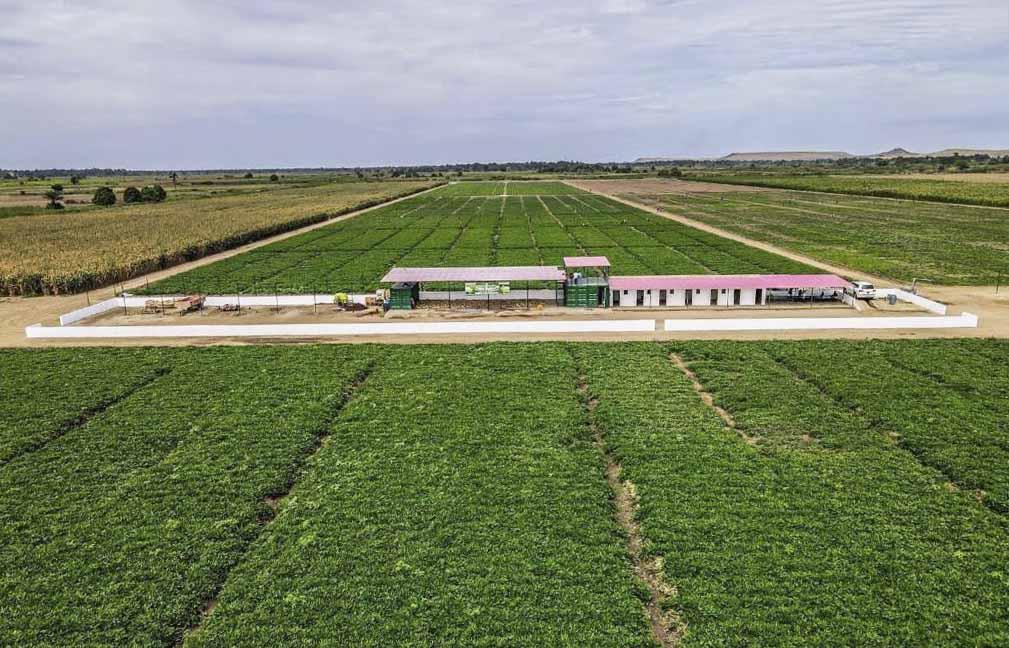Africa-Press – Botswana. Failure to fully implement government policies and programmes has always been a headache for farmers and a setback in improving the agricultural sector and livelihoods of the farming community.
Farmers in Mogoditshane-Thamaga District strongly believe that lack of implementation of policies was a handbrake to progress and growth of the sector.
They shared their sentiments during a consultation meeting on the review of the National Policy on Agricultural Development of 1991 on Tuesday in Mogoditshane.Despite government coming up with good policies and programmes, farmers were of the view that implementation remained a challenge.
They said that the review of the agricultural policy should be a break through, allowing farmers to benefit in large numbers. One of the farmers, Ms Tanki Sola said time had come for government to assist serious and committed farmers determined to produce food for the nation.
She said commercial farming had great benefits both for the owner and market therefore encouraging fellow farmers to commercialise their farming to reap the benefits.
Ms Sola said even though her bee keeping and honey production business was doing well, her hope was for the review of the policy to come up with interventions to assist small scale farmers grow and expand their businesses.
She added that farmers should not look down on themselves, as no matter how little they started, opportunities for growth were in abundance.
Another farmer, Mr Thato Motlhagodi said it was unfortunate to note that some beneficiaries of government programmes aimed at growing the agriculture sector had been wasteful, rendering such programmes impractical.
He argued that it could not be said in totally that farmers had not benefited from government programmes as many had and continued to benefit but majority failed to take responsibility of their projects.
Mr Keletso Makgethe said he was worried that many agricultural products that came into Botswana were not fully tested to ascertain their impact on the landscape of the agricultural sector.
He said the new policy should come up with regulations that protected Batswana farmers from agricultural imports that could negatively impact the local market.
Mr Makgethe concurred with Mr Motingwa Tshiping that the provided fertilisers had caused harm than good to the soil, even though government believed it was for enhanced production.
Mr Tshiping also observed that imported seeds had brought with them species of unknown pests and weeds, difficult to deal with, hence the need for every farmer to be careful when using them.
Chief Policy Officer, Ms Lorato Sello said the country was shifting from primarily focusing on food self-sufficiency and food security to food sovereignty.
She said the move emphasised on local controls over food systems, sustainable practices, and the rights of communities to shape how food was produced and distributed in alignment with national values and ecological preservation.
Ms Sello said another government shift was from being the market sector to market enabler, an approach that strengthened the role of the private sector and farming community by creating a supportive environment that encouraged investment, innovation and efficiency across the agriculture value chain.
“The current policy shifts focus towards farm profitability and commercialisation to transform agriculture into a market-driven, income generating sector that boosts productivity, attract investments and create jobs, especially for smallholders and youth,” she said
Ms Sello said the policy shift adopted a new strategic orientation incorporating lessons learned and addressing past limitations. Kgosi Keabetswe Dihutso of Mogoditshane said people should be ready to expect changes as the government was now run by a new administration. He said changes were imminent, hence consultations on the review of the agriculture policy.
Source: dailynews
For More News And Analysis About Botswana Follow Africa-Press






